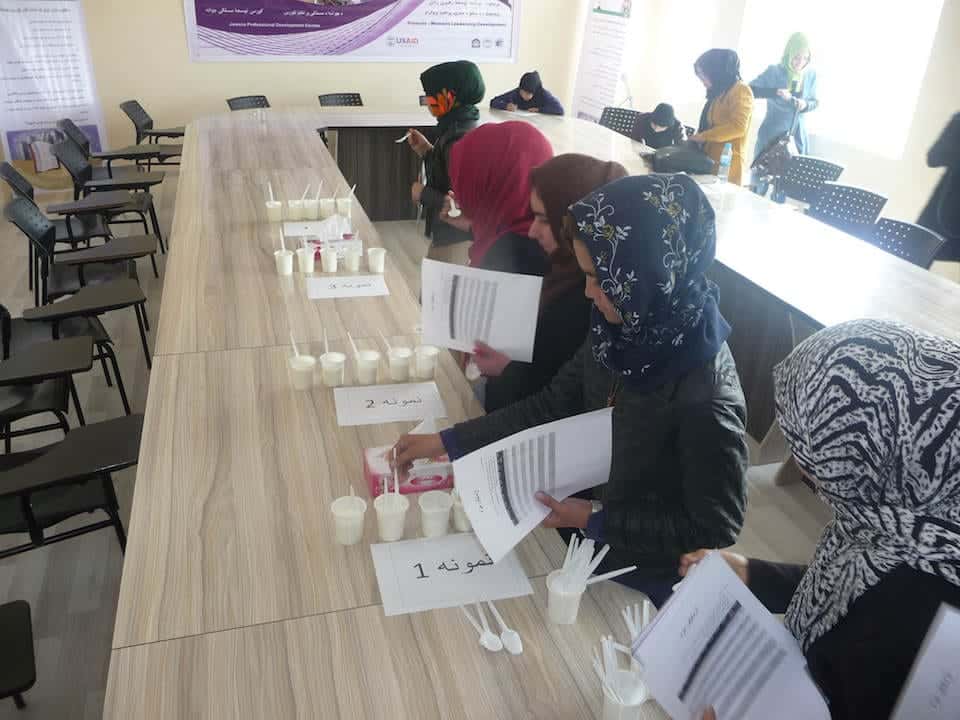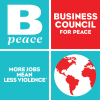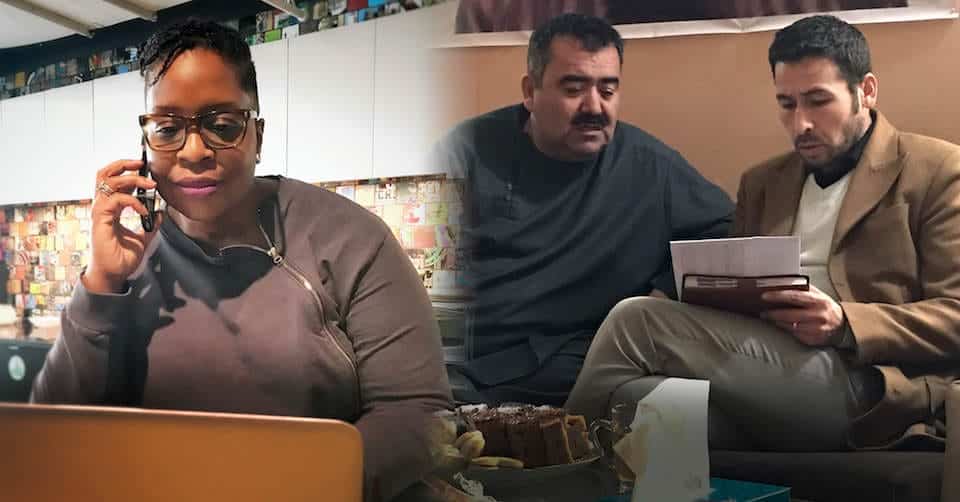A conversation with Sabrina Prince, Senior Vice President, Management Director, for NEON, a full-service healthcare marketing agency
Can sophisticated American marketing concepts resonate with businesses in Afghanistan? Absolutely, says Sabrina Prince, a Bpeace Skillanthropist. By sharing her knowledge with an Afghan dairy manufacturer via Skype, Sabrina has seen firsthand how Bpeace’s ‘Skillanthropy’ model of providing access to experts benefits businesses in economically challenged countries.
How did you find your way to Bpeace?
I’ve been in healthcare advertising for more than 15 years. I got to a point where I was looking for meaningful volunteer opportunities and I have always been interested in empowering women in developing countries. When I did a Google search for “entrepreneur, peace, volunteer, women,” Bpeace popped up. I reached out and that’s how the ball started rolling. Of course, the fact that I ended up helping a businessman who needs to market to female decision makers is ironic.
Why did you choose to be a Virtual Mentor to Afghan businesspeople rather than a Traveling Mentor to businesspeople in Central America, Bpeace’s other option?
When I started with Bpeace I was in the middle of a product launch and I knew I wouldn’t be able to travel, even though I would like to do that in the future. When Marla Gitterman, Bpeace’s Chief Program Officer, suggested working as a Virtual Mentor with an entrepreneur in Afghanistan, I jumped.
Did you have any apprehensions about making the commitment?
I wouldn’t say I had apprehensions, but I wondered if my company would be comfortable with my dedicating time and using the tools and skills I had acquired at work for this purpose. But I received the most wonderful response. My company was thrilled about the potential for positive press and they told me to let them know if they could be of any help.
What excited you most about the opportunity?
It was exhilarating to have the opportunity to work with the end user. Typically, I work with a brand manager and am removed from the people on the ground. As a Virtual Mentor, I have been able to work with an actual dairy farmer, Adbul Matin Qasim of Pakiza Dairy. I am able to talk to Abdul about the challenges of growing his business and my influence could help get him to the next level.
Tell us about the work you have been doing.
Initially, I worked with Balkhi, Bpeace’s local manager for Afghanistan, to create a ‘Branding 101’ presentation. This was an interesting, enlightening, iterative process of distilling ideas for people who fully understand the nuances of marketing because it’s a new concept in the region.
Then Balkhi took Abdul through the 101 while I was online to answer questions. Through our interactions, I learned that just a few decades or so ago most Afghans made yogurt in their homes. Now that there is more of a market and businesses are establishing manufacturing plants, people have choice. Afghans tend to choose the Iranian brands because they are bigger and people have confidence in bigger brands. But is that really what they want?
I worked with Balkhi and Abdul to suggest doing market research to understand what their customers look for – beyond cost – when selecting yogurt brands. The easiest way to implement this was via a grassroots survey in local stores that also included a blind taste test. We discussed the parameters that might be assessed during the survey and ways to encourage customers to participate. He was a little skeptical, but open.
Now he’s at the point that he has the results and we have worked on some messaging for local ads and flyers. We have to help people appreciate that they can be more discriminating when selecting a yogurt, specifically that their measuring stick should be based on personal taste, e.g. thickness, sourness, smell, versus a perception that “foreign is better.” This point of view opens the door for them to see that Pakiza Dairy produces a yogurt that tastes closer to what they would make for their family. We will have to wait to see if our efforts turn the tables.

What most impressed you about your Fast Runner?
Abdul is extremely committed to the quality of his product. His equipment is certified sterile. He gets his milk from local farmers but they each give the animals different feed so he created and distributes his own feed to make sure the yogurt has a consistent taste and quality.
How do you, Balkhi and Abdul communicate?
We use Skype or Google hangouts. We usually talk on Saturday or Sunday mornings at around 7 AM. It’s a good way to start the day. Some days, when you wake up to go to work, you’re dragging, but I just hop out of the bed to do these calls. I feel so motivated.
What is the biggest challenge of working with the Fast Runner?
Their Internet connection in Afghanistan can be challenging.
Where do you feel you add the most value?
I have experience launching brands and can guide a person in the branding and marketing of their business. Also, I have been able to give examples of global brands that are recognized everywhere which helps people to understand and trust the concepts.
What did you learn about Afghanistan?
I’ve learned that Afghanistan is still very fragmented by region. Abdul’s market is limited to his region because the infrastructure to cross into other regions doesn’t exist. So that would need to change before he could really expand. Also, I learned that for the most part, women are the ones who make purchasing decisions and I needed to get Abdul to appreciate that. As a business owner you have to put yourself in the mind of your customer – in this case he has to put himself in the mind of women.
Where there any cultural hurdles to working with your Fast Runner?
I thought there would be cultural hurdles to working with a dairy farmer in Afghanistan, but there weren’t. It felt like I was a trusted friend.
What could Bpeace do to have a greater effect on global peace and security?
I would like to see a case study that captures the emotional as well as economic effect of volunteer engagement that could be presented to the Afghan government. It would be great to shift the perspective at the local level by showing the potential and promise that exists in their people. Maybe then they would invest in the type of development that could make a difference in their country.
Sabrina Prince is the Senior Vice President, Management Director, for NEON, a full-service healthcare marketing agency. She has over 15 years of diverse experience in marketing and science. When Sabrina isn’t working or volunteering, you can find her traveling or videotaping cooking lessons for her forthcoming YouTube channel.




